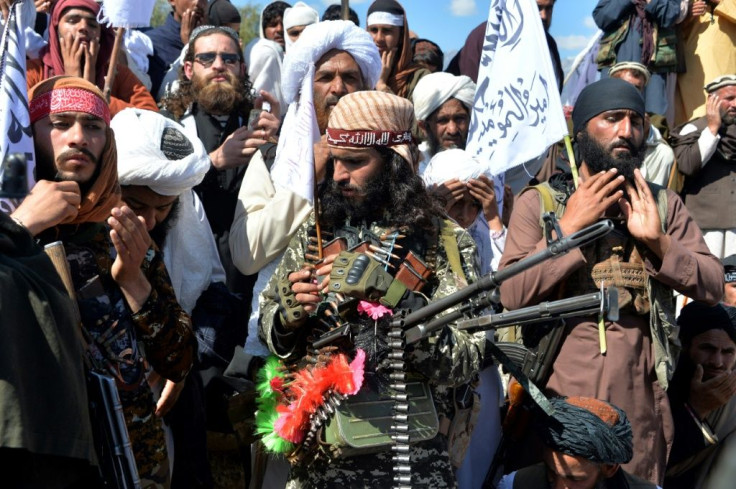Afghan President Pushing For Global 'Consensus' On Talks With Taliban
Afghan President Ashraf Ghani is expected to start pushing Monday for a global consensus on peace talks with the Taliban, even as his spokesman slammed the militants for a spike in violence.
Ghani is hosting three online conferences with representatives of some 20 countries this week, with the first meeting scheduled for later Monday.
They aim to "build a consensus" for the peace talks at regional and international level, said Gran Hewad, a spokesman for the foreign ministry.
The United States and Russia along with some international organisations such as the United Nations will take part, officials said.
Other countries participating include Pakistan, India, Iran, China, Egypt and Qatar, they added.
But just hours ahead of the first online meeting, Ghani's spokesman slammed the Taliban for an uptick in violence in recent weeks.
"There is no obstacle on our side for the peace process, but we see that the Taliban are not serious," Sediq Sediqqi told reporters.
"The government of Afghanistan released a large number of Taliban in order to reduce violence in the country, but the violence has not decreased."

Afghan authorities have released more than 4,000 Taliban prisoners out of 5,000 demanded by the insurgents in a deal with Washington signed in February.
That deal paves the way for withdrawing of all foreign forces from Afghanistan by the middle of next year.
Violence dropped in the run-up to the Taliban-Washington deal -- and again, briefly, after militants announced a three-day ceasefire on May 24.
But there has been a spike in violence across much of the country in the past few weeks, with officials blaming the Taliban for killing and wounding hundreds of security personnel and civilians.
The Taliban have denied responsibility for many of the attacks, but acknowledge their fighters were targeting Afghan security forces in rural areas.
mam-jds/fox
© Copyright AFP 2024. All rights reserved.





















